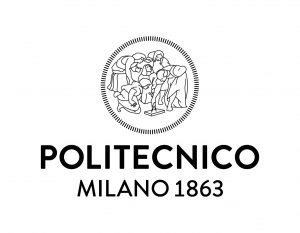University of Coimbra
 The University of Coimbra (UCOMB), Portugal, was founded in the year 1290 and comprises eight Faculties, more than 2000 teachers and 22000 students. The participation in the proposed project is carried out through the Adaptive Computation Group of the Department of Informatics Engineering (DEI), which is one of the 11 departments of the Faculty of Sciences and Technology (FCTUC) and integrates one of its 17 research units. FCTUC offers a large array of different undergraduate and post-graduate degrees (concretely, 20 Bachelor, 36 Master and 23 PhD programs) in Engineering, Life Sciences, Exact Sciences, Architecture and Anthropology. About 7000 students, both undergraduate and postgraduate, attend FCTUC programs, making it the biggest Faculty within UCOMB.
The University of Coimbra (UCOMB), Portugal, was founded in the year 1290 and comprises eight Faculties, more than 2000 teachers and 22000 students. The participation in the proposed project is carried out through the Adaptive Computation Group of the Department of Informatics Engineering (DEI), which is one of the 11 departments of the Faculty of Sciences and Technology (FCTUC) and integrates one of its 17 research units. FCTUC offers a large array of different undergraduate and post-graduate degrees (concretely, 20 Bachelor, 36 Master and 23 PhD programs) in Engineering, Life Sciences, Exact Sciences, Architecture and Anthropology. About 7000 students, both undergraduate and postgraduate, attend FCTUC programs, making it the biggest Faculty within UCOMB.
The Department of Informatics Engineering of the FCT-UC comprises more than 100 researchers, of which 40 hold Ph.D. degrees. Inside DEI, the group involved in the current project is the Adaptive Computation Group (ACG). The main core expertise of the Adaptive Computation Group concerns R&D for intelligent data analysis, modelling and complex systems integrating data driven as well as knowledge driven approaches. The group has a vast experience in fundamental and applied research on on-line system identification and control, non-linear modelling and prediction, bio-signal processing, image processing, pattern recognition and Medical Informatics. In the last few years the group has
published more than 400 papers in international conferences and journals, and has been involved in several R&D projects in the pHealth-cardiology area at national and European levels, such as MyHeart (IST-2002-507816), HeartCycle (FP7–216695), EPILEPSIAE (FP7-211713), HeartWays (FP7-315659) and Welcome (FP7-611223).
Polytechnic University of Valencia
U PV is a 45 years old institution adding up over 42.000people comprising 10 technical schools, 3 faculties and 2higher polytechnic schools in three campus with a strong international experience in ICT technologies applied to different domains. The team in charge of the work, UPV-SABIEN, belongs to ITACA Institute (www.itaca.upv.es) the major research group in biomedical computer science and e-Health of the UPV. UPV-SABIEN has an extensive expertise in the application of ICT to the social and healthcare systems, in Ambient Intelligence (AmI), in Ambient Assisted Living technologies (AAL), and also in reengineering and evaluation and validation of social and health care processes and solutions in real environments, not only dealing with the generation of indicators but also user and
PV is a 45 years old institution adding up over 42.000people comprising 10 technical schools, 3 faculties and 2higher polytechnic schools in three campus with a strong international experience in ICT technologies applied to different domains. The team in charge of the work, UPV-SABIEN, belongs to ITACA Institute (www.itaca.upv.es) the major research group in biomedical computer science and e-Health of the UPV. UPV-SABIEN has an extensive expertise in the application of ICT to the social and healthcare systems, in Ambient Intelligence (AmI), in Ambient Assisted Living technologies (AAL), and also in reengineering and evaluation and validation of social and health care processes and solutions in real environments, not only dealing with the generation of indicators but also user and
business centred data, including a long experience in using mobile technologies for health and social purposes. The group is also responsible for several health-related web sites, including several social webs, and it’s very active in the health2.0 domain. The group has contributed to the planning and deployment of eHealth services in the region, including the collaboration with the development of the Regional Strategic Telemedicine Plan (2010) and with the participation of the region and the National Health Ministry in the EPSOS project, providing technical support to the work developed in this initiative.
Polytechnic University of Milan
 The Politecnico di Milano is a State University and is now ranked as one ofthe most outstanding European Universities in Engineering, Architecture and Industrial Design, and in many disciplines is regarded as a leading research institution worldwide. Research activities take place mainly in the Departments, where they are developed by a large number of research groups. The mission of the Bioengineering Section of the DEIB (Department of Electronics, Information and Bioengineering) is to progress the knowledge of biomedical engineering through the multidisciplinary research. Finally, the Bioengineering Section fulfills the task of making available proper methods, tools and knowledge to hospitals and private and public health organizations, both at a national and international level, in technical supporting systems, advising, consulting, research and development as well as transfer of innovative products, systems and technologies. In particular, the Section includes researchers who demonstrated their competence to properly operate in the area of biomedical signal processing and data analysis and
The Politecnico di Milano is a State University and is now ranked as one ofthe most outstanding European Universities in Engineering, Architecture and Industrial Design, and in many disciplines is regarded as a leading research institution worldwide. Research activities take place mainly in the Departments, where they are developed by a large number of research groups. The mission of the Bioengineering Section of the DEIB (Department of Electronics, Information and Bioengineering) is to progress the knowledge of biomedical engineering through the multidisciplinary research. Finally, the Bioengineering Section fulfills the task of making available proper methods, tools and knowledge to hospitals and private and public health organizations, both at a national and international level, in technical supporting systems, advising, consulting, research and development as well as transfer of innovative products, systems and technologies. In particular, the Section includes researchers who demonstrated their competence to properly operate in the area of biomedical signal processing and data analysis and
modeling through advanced algorithms and methodologies, applied to solve different problems both at clinical and physiological level. Multi-parametric approaches involving both linear and non-linear algorithms, multiple regression techniques, automatic feature extraction and classification have been developed for applications in both physiological and clinical settings. In particular, the activity of the B3LAB, involved in the present project, concerns data processing and information treatment for biomedical research: data, signal and image analysis; development of biological and physiological systems models; multi-modal, multi-scale information integration; data mining; bioinformatics for molecular medicine and systems biology.